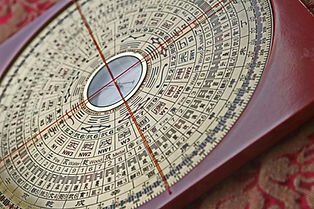Frequently Asked Questions
How to pronounce “Feng Shui”
People pronounce “Feng Shui” differently, depending on the region they are from. The correct ways to pronounce Feng Shui phonetically are "Foong Shway", "Fung Shway", "Foong Shoy" and "Foong Soy"… not "Feng Shoe"!
What is Feng Shui?
Feng Shui is the art of balancing the elements and energy flow in your surroundings. It is believed that the energy in your environment affects your destiny and luck. Feng Shui is also the study of energy in our surroundings and how this can impact people in different ways.
Feng Shui is the art of balancing the elements within a space to promote harmony and an optimal flow of energy. These elements include design characteristics, layouts, architectural features and any other objects that are part of your living or working environment. The energy, flow and balance within a building influence the prosperity, harmony and well-being of the occupants.
What is the aim of Feng Shui?
The aim of Feng Shui is to understand the flow of energy in our buildings and environment, and how this energy impacts us on a mental, physical and spiritual level.
How was Feng Shui discovered?
Ancient Chinese masters discovered that various patterns of energy impacted the human body and mind. Some influences were favourable, while others were negative and brought about disturbances and obstacles. It was discovered that when people were aligned with positive energy, they experienced periods of good fortune, whereas if they were aligned with stagnant or unfavourable energy, they would experience misfortune and obstacles.
From these observations came a defined set of guidelines, rules and mathematical systems, which were tested and devised by the Chinese masters over thousands of years. This forms the basis of advanced Feng Shui theories. True Feng Shui is not based on superstition or religion.
Where do you work?
Jane is based in Sydney. However, she does provide consultations all around Australia and overseas, either in person or using online conferencing.
What if I don’t like your recommendations?
Jane’s objective is to respectfully assist clients and associates with Feng Shui advice, and understands that ultimate decision-making rests with the client. Sometimes there can be different ways to deal with a Feng Shui problem and Jane is always open to discussing alternative solutions.
Do I need tacky lucky objects to have good Feng Shui?
Not at all; a property with truly good Feng Shui should look and feel great and work well for the occupants. Feng Shui done well should not look like a Feng Shui master has even been there. Feng Shui remedies should integrate seamlessly with the décor.
When is the best time to use a
Feng Shui consultant?
Any time is a good time to use a Feng Shui consultant, but the best time is at the concept stage of design, when floor plans are still lines on a page that can be easily changed. Even if you are in a completed building, don't worry. There are always ways to improve the Feng Shui for the occupants.
How much does it cost for a Feng Shui consultation?
The cost of a Feng Shui consultation varies depending on the services required, location, complexity of floor plan and size of the property, amongst other things. Every property is unique and so is the consultation fee. It's best if you email your floor plan to Jane so you can both talk over the phone, and she can find out more about your requirements. This will enable her to provide you with an accurate quote.
What is the process for a Feng Shui consultation?
Firstly, Jane will assess your requirements and book in a site visit, to assess the energy in the property, and talk about the issues and how she can assist you. A thorough analysis is conducted, of energy flow, layouts, forms, surrounding landscapes and design elements. Jane will calculate the geomantic chart, or energetic map of the building. This indicates where certain energies are located, such as the wealth sector, and how supportive the building is for prosperity, health and relationships.
If you have engaged Jane at the design concept stage, this is where you can really maximise the energy in the property, and rectify any Feng Shui issues that can affect property value. Certain Feng Shui formulas and methodologies will be considered, depending on the requirements of the consultation.
Solutions and remedies may be applied through the art of placement and the use of the five elements of Fire, Earth, Metal, Water and Wood. These elements translate to colours, shapes and finishes.
Birthdates of occupants are considered, mainly in home consultations, and for commercial spaces Jane evaluates the use of symbolism and considers cultural sensitivities.



